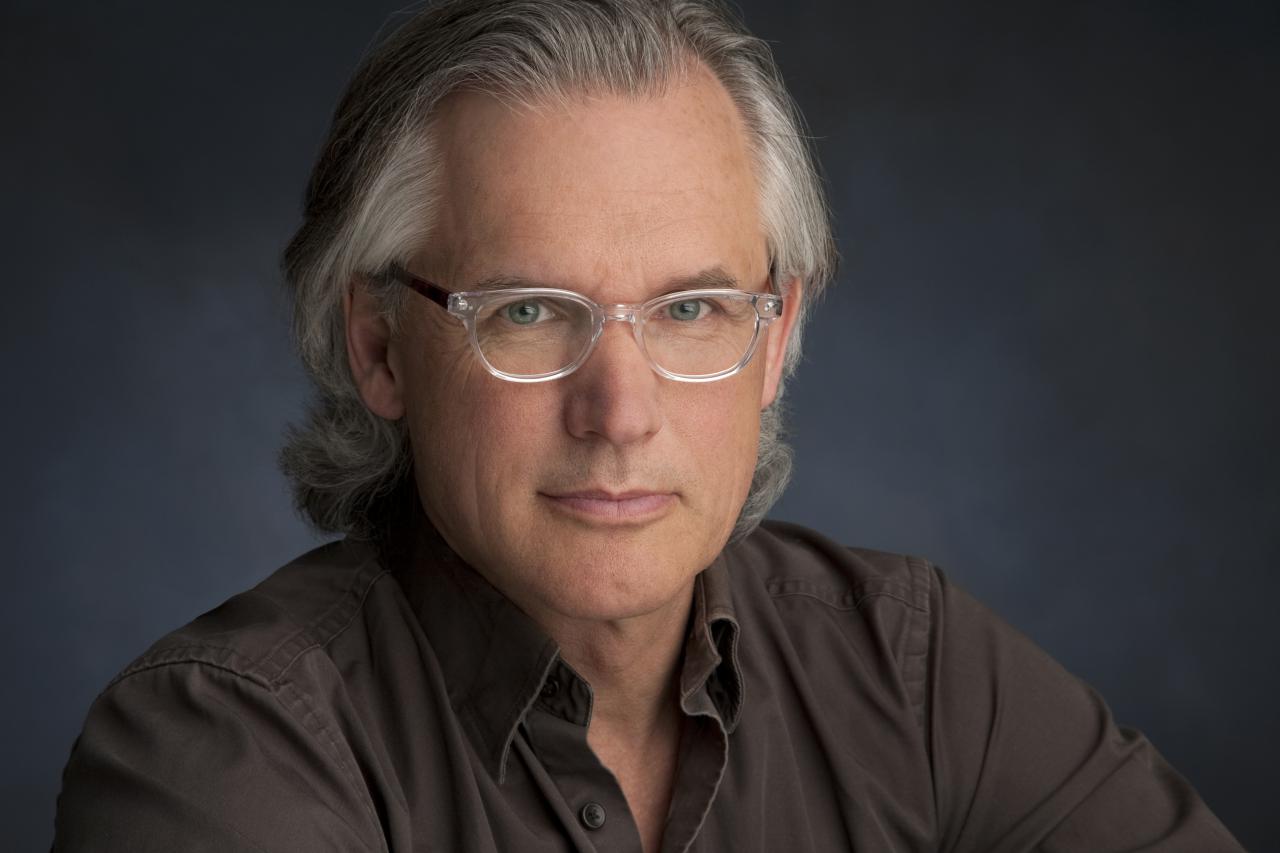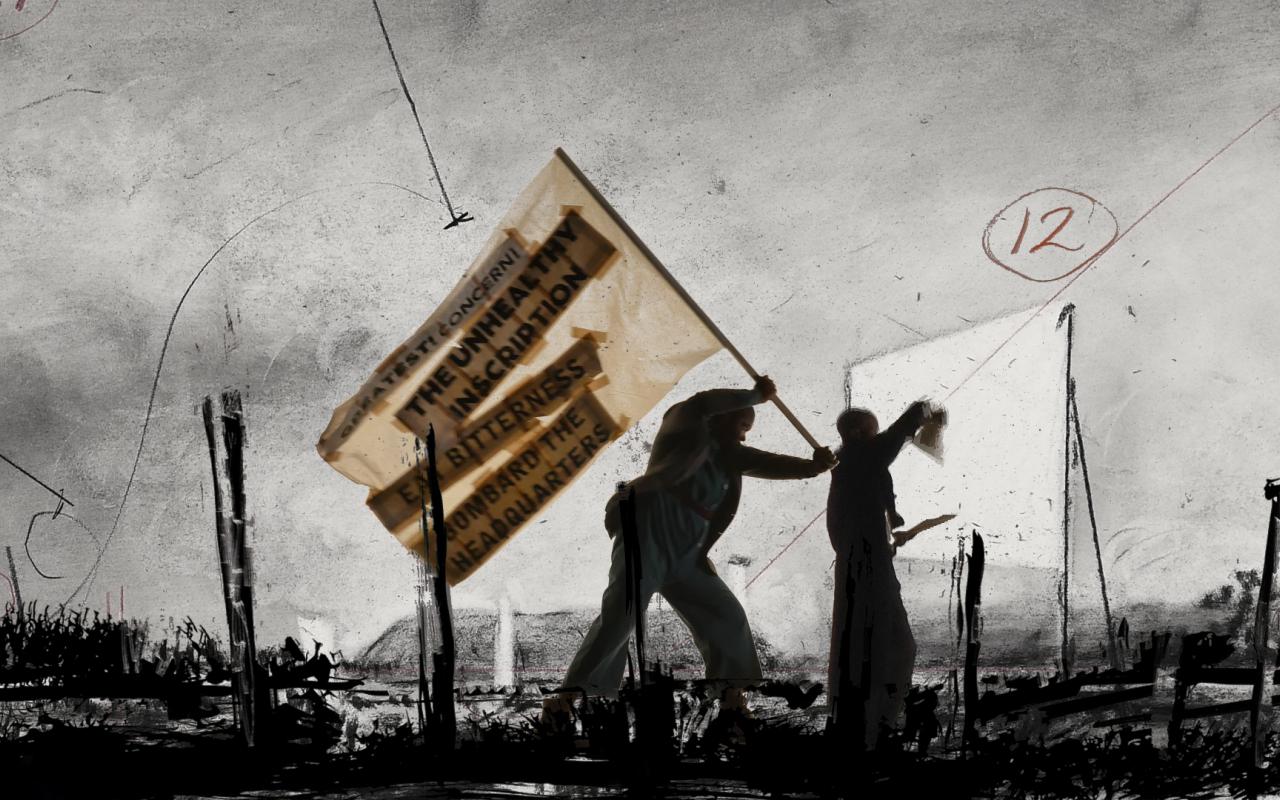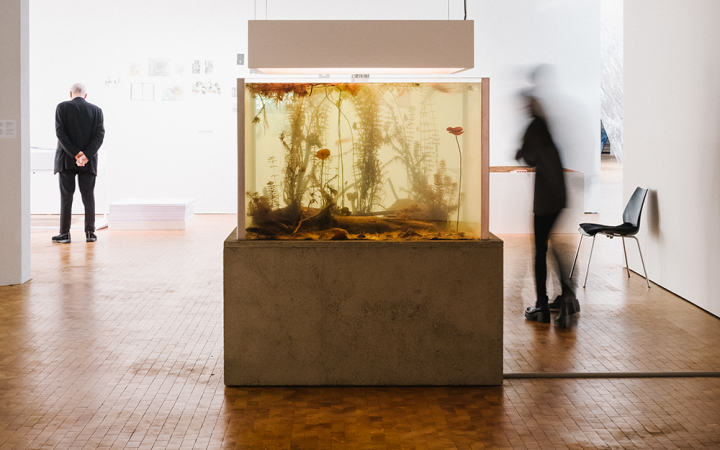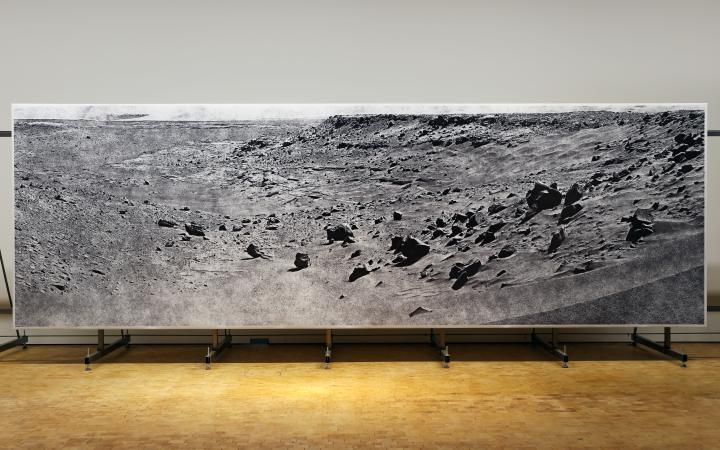
22.08.2012
»Space is not a flavour«
Eine Begegnung mit Robert Normandeau
Der international ausgerichtete Giga-Hertz-Preis des ZKM ehrt jedes Jahr Komponisten der elektronischen und elektroakustischen Musik.
Vergeben wird ein Hauptpreis, der das Gesamtschaffen des ausgewählten Künstlers und seine Verdienste um die elektronische Musik im Besonderen honoriert. Des weiteren werden mehrere Produktionspreise vergeben, mit denen die ausgewählten Komponisten in der Realisierung eines neuen Werkes am Institut für Musik und Akustik (IMA) des ZKM unterstützt werden. 2010 gehörte der kanadische Komponist Robert Normandeau zu den Produktionspreisträgern. Er hat in zwei Aufenthalten am IMA im Jahre 2011 und zuletzt im Juli 2012 eine neue akusmatische Komposition mit dem Titel La Part des Anges fertig gestellt. In einem Gespräch mit IMA-Mitarbeiter Till Kniola gab Robert Normandeau Auskunft über seine Arbeit und seinen Werdegang.
Der kanadische Komponist Robert Normandeau (Jahrgang 1955) zählt zu den weltweit wichtigsten Komponisten für elektroakustische und akusmatische Musik. Er hat für sein Schaffen zahlreiche Preise erhalten. Robert Normandeau übt eine rege Konzerttätigkeit weltweit aus und hat etliche CD- und DVD-Veröffentlichungen vorzuweisen. Er ist Professor für Elektroakustische Musik an der Université de Montréal, Kanada. Robert Normandeau begann seine musikalische Laufbahn als Musiker zu Collegezeiten, wo er Bass in verschiedenen Progressive-Rock-Bands spielte. Während seiner ersten Musikstudien an der Laval University in Quebec City kam er am von Nil Parent 1969 gegründeten Studio (SMEUL – Studio de musique électronique de l’Université Laval) erstmals in Kontakt mit elektronischer Musik.
»In the early 70′s I found a record in the university library that changed everything for me. It was Telemusik by Karlheinz Stockhausen. When I first listened to it I was totally shocked and couldn’t understand what it was. But I was at the same time totally attracted to this strange kind of music and wanted to hear more. This eventually led me to becoming a composer in the electroacoustic world.« – Robert Normandeau
Normandeau hängte sein Dasein als Instrumentalist an den Nagel und experimentierte mit Tapes und der Verfremdung von Feldaufnahmen aus seiner Umwelt. Auch sein erstes Konzerterlebnis im Bereich elektroakustischer Musik, ein Gastspiel der GRM-Musiker Guy Reibel, Bernard Parmegiani und Michel Chion in Montreal in den späten 1970ern, bestärkte seine Absicht, sich als Komponist elektroakustischer Musik zu versuchen. Als erster Absolvent in Kanada promovierte Robert Normandeau 1992 mit einer praktischen Arbeit aus dem Bereich der elektroakustischen Musik. Sein Thema damals: Cinema for the ear.
»In my first works I was particularily interested in drawing on the experience of the cinema. I tried to apply techniques and a kind of language from cinema to electroacoustic music. This related to questions of timings, movements, perspective and focus, etc. In film there is a long tradition of formulating theories about the practical work of directors and documenting the steps in the working process. In electro-acoustic music we don’t have this, it is all still very much at the beginning. And with my studies in what I coined Cinema for the ear I discovered, that there are many questions and techniques in the art of cinema that have a strong relation to the work of electroacoustic composers.« – Robert Normandeau
Robert Normandeau hat mit seinen frühen Forschungen und Arbeiten, die daraus entstanden sind, zweifelsohne wichtige Grundlagen für die ästhetische Weiterentwicklung der elektroakustischen Musik gelegt. Nicht von ungefähr wurde vom französischen Label Metamkine die Reihe Cinéma pour l’oreille ins Leben gerufen und auch aktuell versucht Normandeau als Professor die Fragestellungen seines »Ohrenkino-Ansatzes« unter seinen Studenten lebendig zu halten. Auch das Institut für Musik und Akustik am ZKM ist einer der weltweit profiliertesten Orte, an denen aktiv im Bereich der elektroakustischen Musik geforscht wird, weshalb Normandeau seine Arbeitsaufenthalte in Karlsruhe nicht missen will.
»A professional environment like the ZKM enables me to really dig into the one important aspect of electroacoustic music: space. For me, space is not a flavour, something that I add as an extra spice when I have laid out my work. Quite to the contrary the notion of space is important to me in every step of the compositional process. I can only work with this parameter in a good setting, where I have good speakers and a setting like the Klangdom or the studios at ZKM where I can experiment with positioning of sounds, volume, etc. This is something I cannot do in the same quality in my studio at home.« – Robert Normandeau
Befragt nach der aktuellen Arbeit am Institut für Musik und Akustik antwortet Normandeau:
»Last year I had begun work on a piece called La Part des Anges or in English something like Angel’s Share. The name is taken from an expression in French which relates to the production of alcohol. In a distillery when you store alcohol in heavy barrells for many years there is a part of the original alcohol that evaporates throughout the years. This is the part of the drink that belongs to the angels. A beautiful expression I think. I tried to take inspiration from that idea for my composition. I only used voice samples from recordings from all over the world. In my work those voices should be totally stripped of semantics or lyrical content. You can still hear the sounds are human voices but you cannot distinguish where they are from, if they are from Corsica, USA or Hungary or what they are singing about. In terms of production it was very important to come back to the ZKM because only now I was able to work with a new tool that we have finished at my university in Montreal. It is a software that enables me to directly link the Zirkonium environment, that was developed here at ZKM, with an audio sequencer and to have a more direct and hands-on control of the speakers I use as my instruments. With this new plug-in I could re-do the original composition in a much more satisfying way.« – Robert Normandeau
Zur Person


